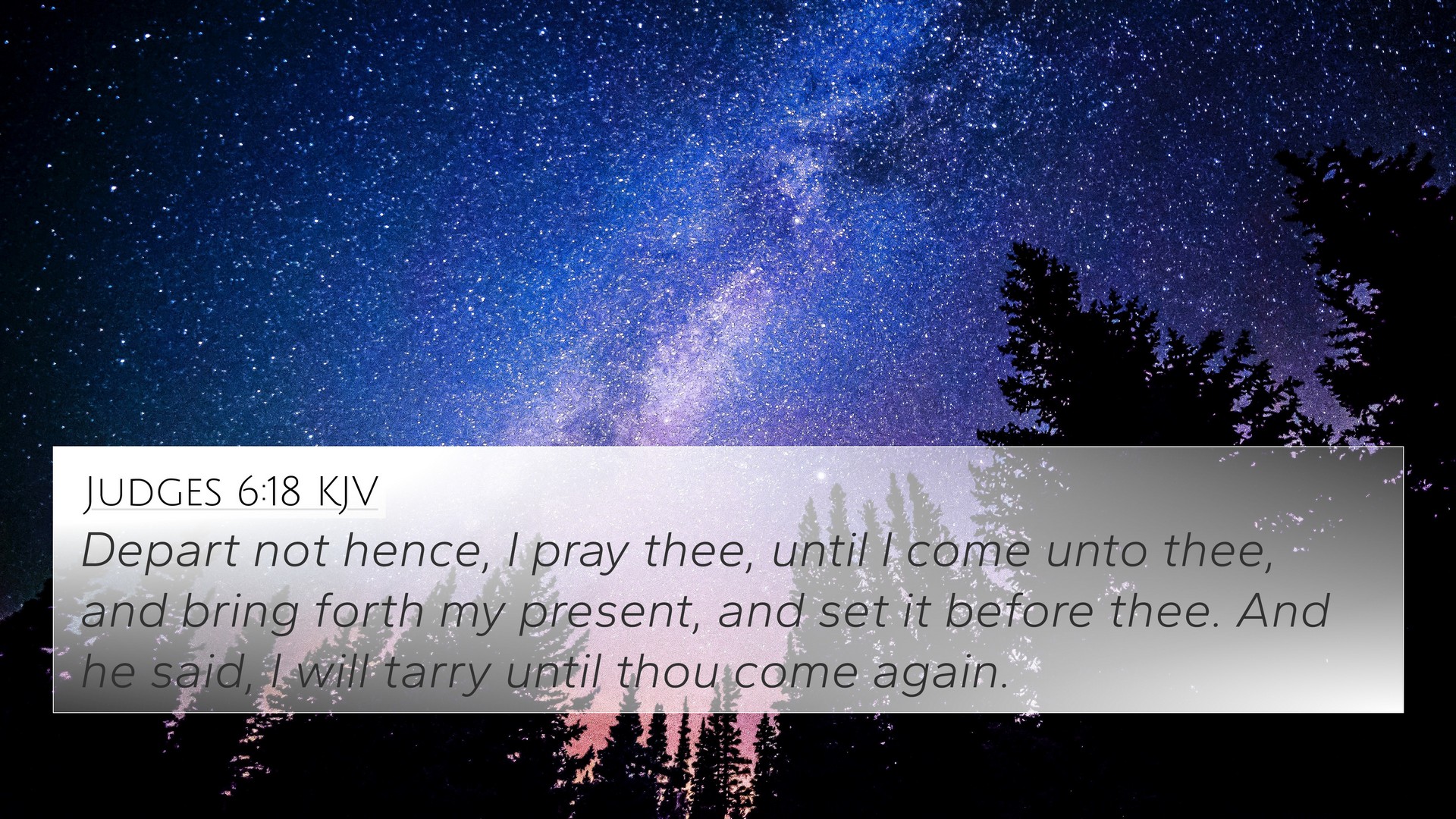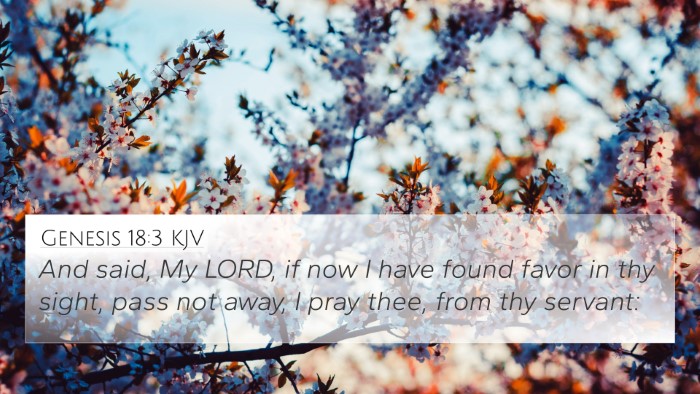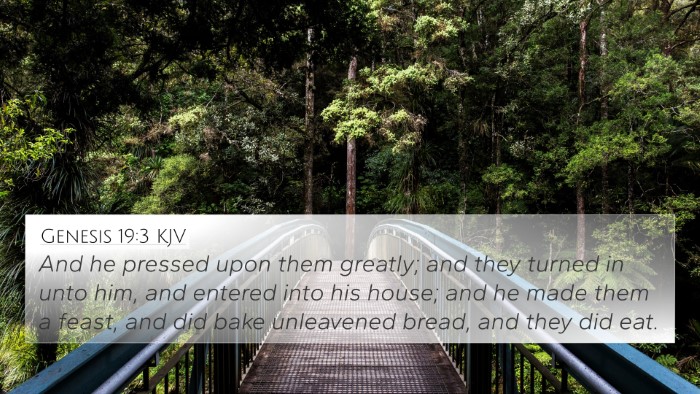Understanding Judges 6:18
Judges 6:18 states: "Do not depart from here, I pray thee, until I come unto thee, and bring forth my present, and set it before thee." This verse presents a conversation between Gideon and the angel of the Lord, symbolizing a moment of divine encounter and human vulnerability.
Summary of Insights from Public Domain Commentaries
This verse reveals Gideon's desire for assurance from God and demonstrates his need to express gratitude through offerings. The insights from various commentaries, including those by Matthew Henry, Albert Barnes, and Adam Clarke, emphasize several key themes:
- Human Need for Assurance: Gideon’s request for the angel to wait illustrates the human desire for reassurance in times of uncertainty.
- Significance of Offerings: The act of presenting an offering signifies gratitude and acknowledgment of God's provision and presence.
- Divine Tolerance of Human Faltering: The willingness of the angel to wait highlights God’s patience and understanding of our human weaknesses.
Thematic Connections and Cross-References
Judges 6:18 serves as a rich verse for thematic connections and Bible verse cross-references. Below are related verses and themes that enrich our understanding and reflection:
- Genesis 18:3-5: Abraham's hospitality and offering to the visiting angels serve as a parallel to Gideon's offering.
- Exodus 25:2: The principle of offerings is established here, resonating with Gideon's desire to present a gift.
- 1 Samuel 9:7-8: Saul’s offering as part of seeking guidance correlates with Gideon’s need for divine direction.
- 2 Samuel 24:24: David’s insistence on not offering to the Lord that which costs him nothing reflects a similar theme of sincere worship.
- Matthew 5:23-24: Jesus teaches about the importance of reconciliation before offerings, paralleling Gideon’s thoughtfulness in presenting his offering.
- Luke 22:19: The Last Supper provides a New Testament reflection on offerings and remembrance.
- Philippians 4:18: Paul speaks of receiving offerings as a fragrant sacrifice, akin to Gideon’s gesture.
Comparative Bible Verse Analysis
Engaging in comparative Bible verse analysis surrounding Judges 6:18 allows us to uncover deeper meanings and applications:
- Confirmation of God's Presence: Each mentioned verse exemplifies God’s involvement in human affairs, reflecting on how Gideon's request amplifies this truth.
- Cultural Practice of Offerings: The Biblically rooted practice of offering hints at connecting deeper with God through acts of faith and gratitude.
Inter-Biblical Dialogue
The interactions highlighted in these passages create an inter-Biblical dialogue, showcasing the continuity and connections throughout scripture. Judges 6:18 encourages reflective thought on how the Old Testament customs of offering evolve, culminating in New Testament practices involving the sacrifice of Christ.
Additional Key Themes from Judges 6:18:
- Faith in Action: Gideon's request signifies a deliberate step in faith, urging readers to act on their beliefs.
- God’s Accessible Nature: The willingness of the angel to engage with Gideon illustrates God’s desire for relationship and communion.
- Welcoming God’s Presence: The act of waiting reflects the importance of being present for God’s revelation in our lives.
Tools for Bible Cross-Referencing
There are various tools for Bible cross-referencing that help readers connect verses:
- Bible Concordance: A useful resource for locating specific verses and their related themes.
- Bible Cross-Reference Guide: Provides structured ways to find connections between scripture.
- Bible reference resources: Essential for comprehensive studies and sermon preparations, facilitating deeper understanding of linkage among verses.
Conclusion
Judges 6:18 encapsulates the essence of assurance, gratitude, and divine friendship. By engaging with various scripture, themes, and commentaries, readers are invited into a broader understanding of their faith journey. Utilizing cross-referencing Bible study methods enables one to draw significant parallels and insights, fostering spiritual growth that bridges the ancient and the contemporary.






